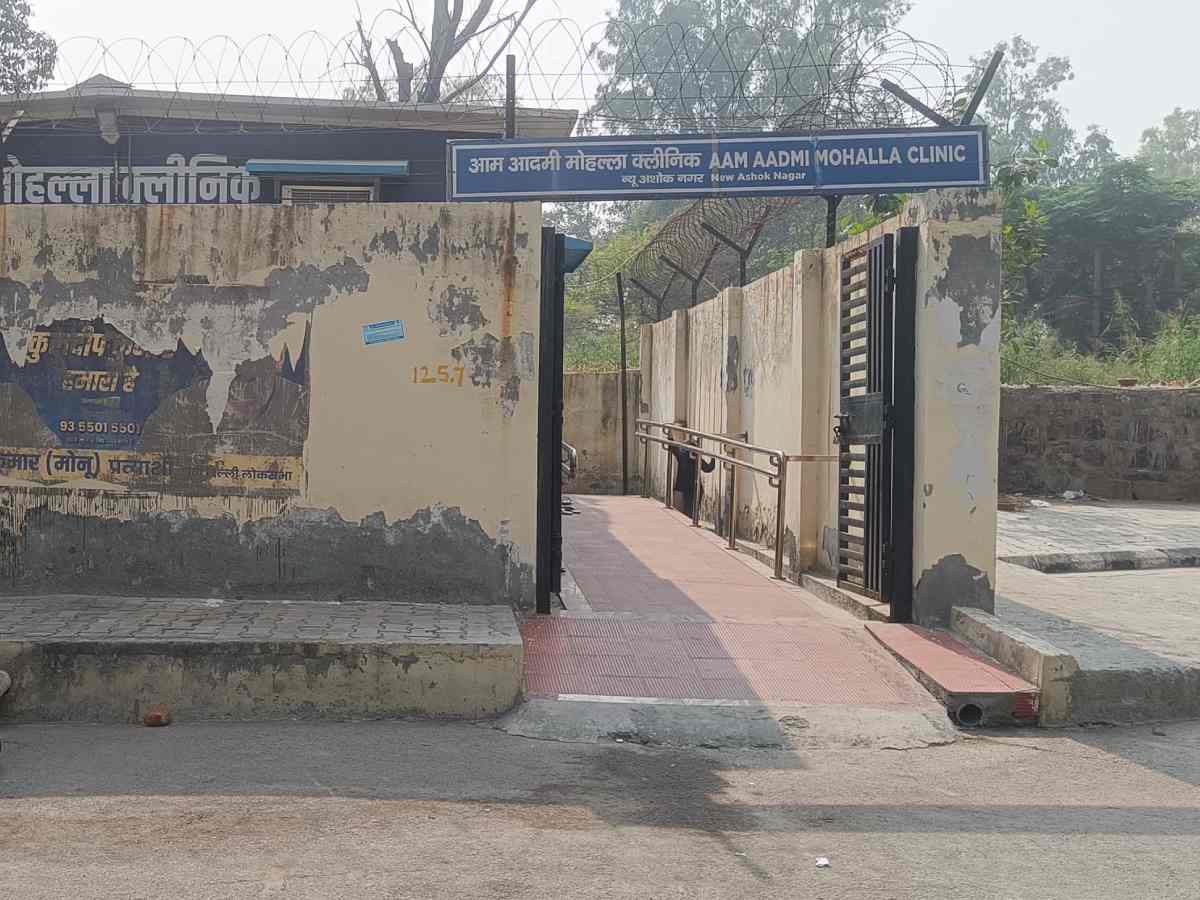
As Delhi’s Air Quality Index (AQI) plummets to “hazardous” levels, the number of patients suffering from pollution-related illnesses has surged at Aam Aadmi Mohalla Clinics across the city. These community health centres, dedicated to providing free healthcare to Delhi residents, have reported a sharp rise in patients affected by pollution and seasonal ailments.
Patriot conducted a ground visit to assess the availability of medicines for pollution-related illnesses at various Aam Aadmi Mohalla Clinics in the city. The purpose of these clinics is to offer accessible and free healthcare to all residents, especially during health crises.
Patriot found that many people are seeking treatment for symptoms such as itchy eyes, sore throats, and acute bronchitis. According to a doctor who spoke on the condition of anonymity, “Most of our patients have pollution-related symptoms.
Also read: Hanuman Road marks 80 years as New Delhi’s first elite colony
We’re treating around 50 patients daily, a significant increase from the 15-20 patients we typically saw in the summer.” He confirmed that the clinics are stocked with essential medicines, including Azithromycin and others, to treat pollution-related conditions. “In only about one in a hundred cases are we unable to supply the necessary medication,” he added.
Additionally, Aam Aadmi Mohalla Clinics offer over 200 free tests, ensuring patients do not incur extra expenses for diagnostics. “These Aam Aadmi Mohalla Clinics are more than just healthcare centres; they represent the Aam Aadmi Party’s (AAP) dedication to providing quality, accessible healthcare within Delhi’s neighbourhoods,” stated Delhi Health Minister Saurabh Bhardwaj. Since their inception, over two crore people have utilised these services, which now even attract well-off patients, underscoring the high standard of care provided.
A visit to the clinic in Mayur Vihar Phase-2 showed a well-maintained facility staffed by a doctor, a compounder, and a pharmacist, who work efficiently to treat a continuous stream of patients. Similarly, the New Ashok Nagar clinic was crowded and staffed by trained healthcare workers.
Sarita Devi, 35, visited the clinic with her children, one of whom had a high fever. She expressed her gratitude, saying, “My husband is a rickshaw puller, and we cannot afford private clinics that charge nearly Rs 500 per consultation. Here, the doctor’s consultation and medicines are free.” Ravi Kumar, a 32-year-old daily wage worker suffering from eye irritation and respiratory issues, described the Aam Aadmi Mohalla Clinics as a “ray of hope” for the underprivileged. “The doctors here listen carefully, and the medicines are free. This initiative bridges the gap between quality healthcare and the poor people of Delhi,” Kumar said.
Twelve-year-old Shanu Singh also sought care at the clinic with his father, Vishal Singh, for a burn injury from Diwali firecrackers. “We have visited this clinic three times this week. The prescribed medicines are effective and free of cost, making life much easier for us. Before these clinics, we could not afford doctor fees and had to rely on pharmacy advice. Now, the Aam Aadmi Mohalla Clinic is so convenient,” said Vishal.
Also read: Delhi honours Pandit Bhaskarrao Bakhale with an eclectic music and dance festival
As of the latest data, Delhi operates 533 Aam Aadmi Mohalla Clinics, with 512 functioning during morning hours and 21 in the evening. Launched in October 2015 by the Delhi government, these clinics offer free primary healthcare services and approximately 450 medical tests, conducted by private pathology labs reimbursed by the government. Aam Aadmi Mohalla Clinics have become a cornerstone of the government’s efforts to improve Delhi’s public health infrastructure, particularly by making basic healthcare accessible to the general population.
Delhi hosted what organisers describe as the world’s first player auction in golf, launching ‘72…
An elderly woman recalls how her six-year-old granddaughter lay bleeding after a speeding car hit…
Municipal Corporation of Delhi plans a unified policy enabling RWAs to adopt and maintain parks…
A 17-year-old boy allegedly died by suicide after jumping before a moving train at Uttam…
Delhi High Court grants bail to 26-year-old Thar driver accused of mowing down two in…
Two Rohini men arrested for fatally stabbing one person and injuring another during a robbery…